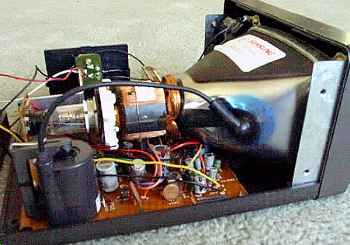Follow along with the video below to see how to install our site as a web app on your home screen.
Note: This feature may not be available in some browsers.
NO!I found about a 25 inch analog TV by the dumpster.
I thought about salvaging parts from it.
I would need help discharging the large capacitor it has.
It's so heavy, it would take 2 to carry it.
Do you think it's worth the effort?
Texas requires TV makers to take back tvs. (2007)
I read that they contain several pounds of lead.
Not sure if enforcement is a top priority as I saw TVs at 2 dumpsters.
I agree with you and won't risk my back.

Nuts and bolts are worth salvaging for DIY/electronics projects.Cord was the only thing I removed.
future-widow
They [our wives] are not going to get all sentimental and reminisce about how we did a great job of removing those relays,
The price is pretty reasonable.
Best Buy
Products we recycle for a $25 fee per item:
Limit two TVs per household per day.

How do you recycle glass that has lead in it?

Why do CRT monitors contain lead?
Why do cathode ray tube computer screens contain lead? Learn about these older computer monitors and why you can't dispose of them in the trash.computer.howstuffworks.com
It turns out that the glass in a CRT contains a lot of lead. A big CRT can contain up to 5 pounds (2.2 kilograms) of lead. It is mixed into the glass for two reasons:
Another dumpster is for clear or white glass throw CRT in this dumpster.
When I started parting out TV sets they looked like this. Easy to cut out the parts and they had long leads.salvaging parts ............… Do you think it's worth the effort?

